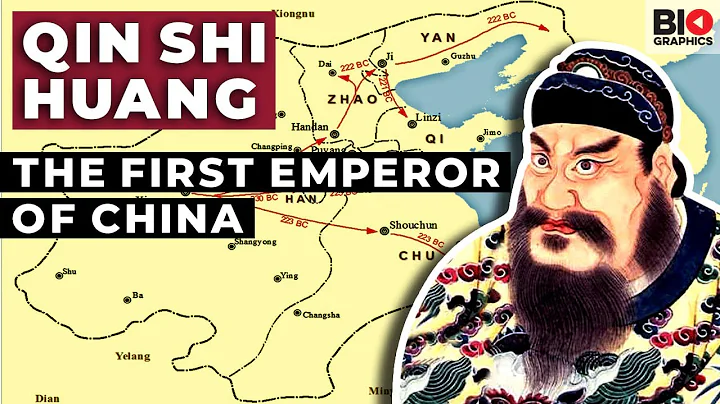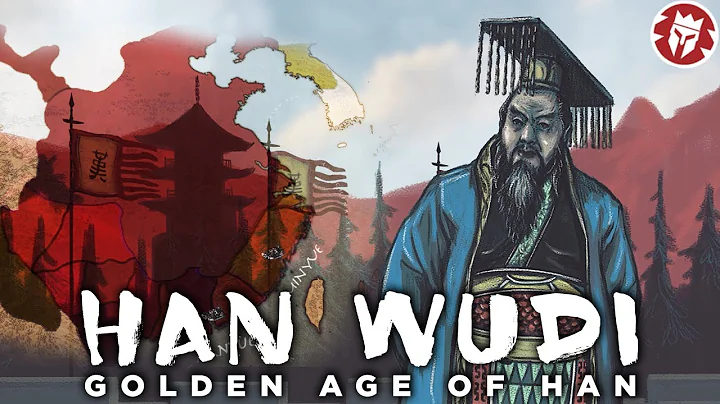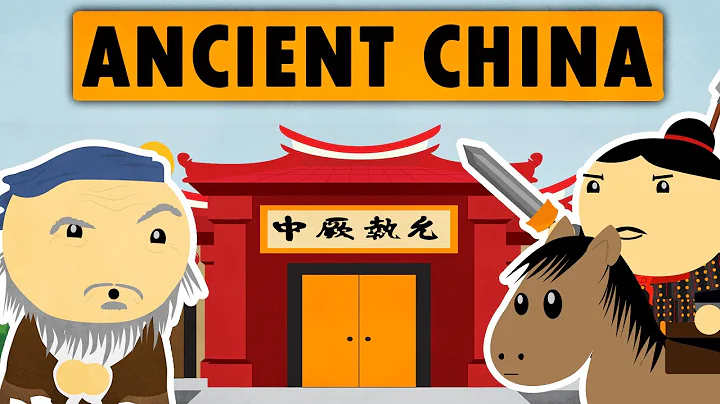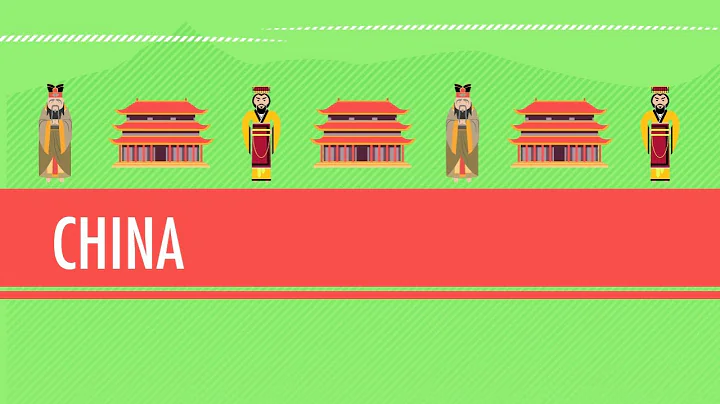China News Service Changchun, June 29th. Question: Unification Why has China survived for thousands of years? ——Exclusive interview with Professor of Jilin UniversityZhou Guanghui
China News Service reporter Guo Jia

Since the Qin Dynasty, China has achieved effective governance of super-large countries, and can still rebuild after being broken, which has become a miracle in the history of world politics. Where does such unique national resilience come from? China News Service's "East-West Question" recently exclusively interviewed Zhou Guanghui, a professor at Jilin University, to explain this.
The interview transcript is summarized as follows:
China News Service reporter: Why did most of the great empires in world history collapse?
Zhou Guanghui: In the history of the world, it is not uncommon for large empires to rule over vast territories and people. During the same period when the great unified dynasties in ancient China were rising and falling, there were unified empires such as the Roman Empire, Charlemagne, and Charlemagne in the Western world. The Arab Empire, the Ottoman Empire, etc. also appeared in the Middle East. A super-large country in ancient China.
However, under the transportation, communication and organizational technology conditions of the agricultural era, the extremely large-scale physical space has brought difficulties in communication and control. If we rely solely on the central government to issue orders, the cost of national decision-making and administration will be very high. In addition, an excessively long administrative control chain will cause serious principal-agent problems. Therefore, although many ancient countries tried to form a centralized institutional structure when they were first established, in the course of historical development, in order to maintain effective rule, they had to decentralize military, personnel and financial powers to local governments, thus effectively forming established a political and administrative system of indirect rule. For example, the regional governors of the Persian Empire had autonomy in military, administrative management and foreign exchanges. However, this decentralization also objectively caused the weakness of centralization and bureaucratic system construction in ancient empires, paving the way for the collapse of the empire.
China News Service reporter: How has the evolution of the unified system created China’s unique national resilience?
Zhou Guanghui: Under the tension structure of a unified system and large-scale governance, the so-called national resilience is the characteristic of the ancient Chinese state that has maintained its unified state form for a long time. In the era of agricultural civilization, the natural trend of the unified system is to disintegrate. Compared with most pre-modern large-scale countries, the unified dynasty in ancient China was unique and existed for a long time in history as a state with strong centralized power and bureaucracy.
First of all, the Qin Dynasty promoted the unification of writing. " book with the same text " provides the initial conditions for a unified country to form a cultural community with historical continuity, and also provides the possibility for ancient China to form a cross-regional cultural and intellectual elite. In contrast, even if it was as long-lasting as the Roman Empire, once the written language of Latin was disconnected from the spoken language and the spoken language evolved in a localized way, it could never be rebuilt after the collapse.

In 2019, the "Hunan Longshan Liye Qin Bamboo Bamboo Cultural Exhibition" was held at the National Museum of China. Published by China News Service and photographed by Pan Xulin
Secondly, ancient China formed and maintained a cultural narrative with "great unification" as its core for a long time. The "main narrative" based on Confucian takes "fixed in one" as the answer to "the world is fixed in evil", advocates "the first brings rule, the second brings chaos", and achieves reproduction through enlightenment and so on. This narrative has a profound impact on the destiny of the country through its impact on people. Even if the dynasty changes, the new dynasty will tend to build a typical unified Chinese country, even if the regime established by ethnic minorities is no exception.

In January 2021, visitors visited the "High Mountains and Long Rivers - Theme Cultural Relics Exhibition of Eight Great Masters of the Tang and Song Dynasties" at the Liaoning Provincial Museum . Published by China News Service, photographed by Huang Huangkun
Finally, the scholar-bureaucrats combined the three roles of country squires, officials, and intellectual elites. Since Emperor Wu of the Han Dynasty implemented the national policy of "deposing hundreds of schools of thought and commending the Six Classics" and established the Imperial Academy, knowledge and power have formed an institutionalized connection channel. Especially after the implementation of the imperial examination system in the Sui Dynasty, scholars with knowledge continued to enter the bureaucracy, providing human resources for improving the bureaucratic system.In the West, it was not until the development of the university system in the 15th century that the construction of its bureaucratic system received human support, so it was relatively "late maturing". In addition, the scholar-official class was deeply influenced by the "subject narrative" with great unification as the core, and was a staunch supporter of the unified national form. In the era of turmoil and division, they made public opinion and organizational preparations for the reconstruction of great unification.
China News Service reporter: From the perspective of civilization development, what are the similarities and differences in the roles of Christian civilization, Islamic civilization and Chinese civilization in promoting the formation of national resilience?
Zhou Guanghui: Christian civilization and Islamic civilization have distinct institutional religious overtones. Although Chinese civilization includes Buddhism, Taoism and other religious schools, it is still a secular civilization dominated by Confucianism.. Confucianism formed a systematic justification for the legitimacy of the ancient unified state, and had the most profound impact on the state form of ancient China. In contrast, feudal kingdoms such as Western Europe and Middle East relied on legalization systems derived from transcendent monotheistic religions such as Christianity and Islam . Sinologist Fairbank pointed out, “When most imperial rulers in the world relied mainly on religious authority, Confucianism provided a rational and ethical basis for the current regime to exercise authority. This is a political basis. Great invention. "

" 2021 Confucian Classics Cross-Language Recitation Conference Annual Ceremony" was held in Jinan, Shandong. Chinese culture enthusiasts from 47 countries recited Confucian classics together. Photo by China News Service reporter Lu Yan
As civilizations with strong religious overtones, countries with Christian civilization and Islamic civilization both have what historian Toynbee called the "Great Unified Church", and the secularity of Chinese civilization determines its domestic There was no religious power comparable to imperial power, nor was there a highly organized church. Therefore, there have been no religious wars in Chinese history. Historical sociologist Eisenstad concluded: "There is no organized church in China. The monasteries of the Tang Dynasty are most similar to the centralized church system, but they still have nothing in common with the European Catholic Church. There is no one This kind of Chinese religion has become a fully organized autonomous unit. "Therefore, the development of Christian civilization and Islamic civilization is not entirely dependent on a certain state, but is relatively more dependent on churches and believers, while the long-term continuation of Chinese civilization is mainly dependent on it. It is expressed as the long-term continuation of a specific national form, which is also expressed as the observed national resilience.
China News Service reporter: What important historical legacies has the unified system that lasted for thousands of years left to contemporary China?
Zhou Guanghui: The unified state form from the Qin and Han Dynasties to the late Qing Dynasty is the most lasting and important state form in Chinese history, and it is also the historical starting point of China’s modern state construction. The form of a unified state has profoundly shaped contemporary China’s territorial space, ethnic structure, values and governance model, and provided a rich historical legacy for contemporary China’s national governance. This makes contemporary China's political and social governance measures both universal in the direction of modernization and reflecting the uniqueness of its own civilization development, such as the unique enlightenment politics of ancient unified China.

On March 30, 2021, in the children's theater of the Experimental Primary School in Rugao Economic and Technological Development Zone, Jiangsu Province, teachers and students were reciting "Derun Spring Breeze, Educational Way". Photo by Xu Hui from China News Service
Enlightenment is a governance method that combines morality, culture and education. Since there was no "unified church" that dominated the spiritual world in ancient unified China, the state assumed the responsibility of spreading mainstream culture and shaping the cultural community. Through enlightenment, the ideology , lifestyle and social customs advocated by the unified dynasty can be demonstrated and promoted. Enlightenment played a vital role in maintaining the stability of ancient unified China. The civilizational traditions of different countries will have a profound impact on the choice and process of their modernization paths. China’s historical legacy of educational politics for thousands of years also provides a reference perspective for us to observe and understand contemporary China’s governance practices. For example, in school education, it is clearly required to take "cultivating people with moral integrity" as the fundamental task of education.
Some useful content and methods adopted by ancient China in enlightenment politics are worth learning from. Compared with past enlightenment, education and publicity in contemporary China must be oriented toward modernization, internationalization, and reflect the value of modernity. During the critical period of China's modernization, development and transformation, the tradition of education will still play a positive role in rallying people's morale and safeguarding national stability and development. (End) (Zhao Dehao, a doctoral student of Professor Zhou Guanghui, also contributed to this article)
Interviewee profile:

Interviewee photo provided
Zhou Guanghui, Doctor of Laws, Jilin University School of Administration cum Jilin University Social Justice and Government Professor at the Governance Research Center , National Governance Collaborative Innovation Center , director of the Academic Committee of the Faculty of Social Sciences of Jilin University, researcher at the National Governance Research Institute of Peking University, and deputy director of the Political Science Teaching Steering Committee for Higher Education Institutions of the Ministry of Education. In 2008, he was named a national famous teaching teacher. In 2011, he was selected into the "Changjiang Scholars Distinguished Professor" program of the Ministry of Education. In 2014, he was selected into the National Ten Thousand Talents Program Leading Talents in Philosophy and Social Sciences. His main research fields are political science theory and contemporary Chinese politics.
Zhao Dehao, Doctor of Laws, was selected into Jilin University’s undergraduate, master and doctoral through-training program in 2016. In 2018, he was selected into the “Asian Campus” program and went to Sungkyunkwan University in South Korea for exchange studies. He mainly focuses on national construction and the development and evolution of ancient Chinese state forms, and has published many academic papers.





















